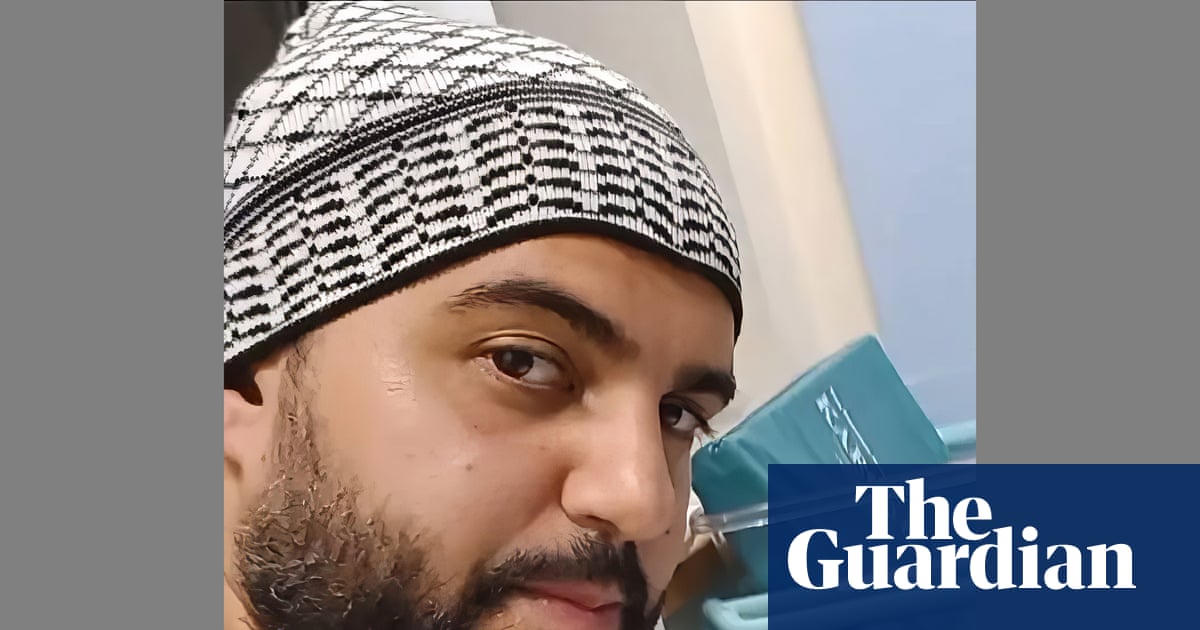Neighbours of the Manchester synagogue attacker reported concerns to police about him and a family member being “radicalised” and attempting to “preach” the Qur’an to local children, the Guardian has been told.
Police have said Jihad al-Shamie, 35, did not appear to be known to counter-terrorism officials before he attacked a Heaton Park synagogue leading to the deaths of two worshippers on Yom Kippur.
However, people who knew the family said on Monday they had concerns about the apparently fanatical interest in Islam shown by the killer and another family member in recent years.
One neighbour said “everything changed” during the Covid pandemic when Shamie and the other relative started wearing traditional Islamic dress, holding “private” gatherings in the garden and attempting to “preach the Qur’an” on their quiet suburban street.
A neighbour told the Guardian: “They just started wearing all the robes and everything. I thought [one relative] was being radicalised because he wouldn’t speak to us for a bit.
“He was coming up the road preaching to kids about the Qur’an. It was quite intimidating. It was intrusive.”
The neighbour, who did not want to be named, said she was “really concerned” and reported it to Greater Manchester police in the summer of 2020 or 2021. “I would never do that if I weren’t [concerned],” she said.
The disclosure is likely to raise questions about whether Shamie should have been on the radar of counter-terrorism police before his attack on the synagogue last Thursday. One witness reported hearing him shout: “This is what you’re going to get for killing our children,” as he attempted to break into the building armed with a knife. Shamie was shot dead by police after the attack.
Greater Manchester police have been contacted for comment. The force said on Friday they believed he “may have been influenced by extreme Islamist ideology”.
The neighbour said she had been invited for meals at their home when they first moved in around 15 years ago – but that stopped when the father, Faraj, moved out a short time later. Their mother, Formoz, was “really nice” and chatty and a “strong woman”, who raised the three boys mostly by herself, she said.
Neighbours said they noticed a change in some of the family during Covid. “It was the change because I would talk to them all the time and then [one of the family] just started rocking up in the robes. He went from not going down that path to going down that path,” said one resident in Prestwich, north Manchester.
They said the “followers” of Shamie and the family member would “congregate” in the family’s front garden: “They didn’t have any white friends. I thought: what the heck is going on? It wasn’t just praying in the garden – it was private and secret.”
Neighbours also claimed that police had visited Shamie’s family home earlier this year, apparently because of safeguarding concerns.
Shamie told one resident “a few months ago” that his partner had moved out. He apparently did not know where they were now living.
The Guardian has also been told that Shamie “became reclusive” after suffering what they described as “brain damage” when he fell off a cliff about 20 years ago, when he was a teenager.
“Jihad had a bad accident,” said one neighbour. “He fell off a cliff and got airlifted to London. He had massive head injuries, it was horrific. You didn’t see much of him after that – he became very quiet and reclusive.”
The Guardian revealed on Friday that Shamie was on police bail under investigation for an alleged rape when he attacked the synagogue, about two miles from the family home, last Thursday morning.
On Friday Jihad’s father, Faraj al-Shamie, condemned his son’s “heinous act”.
He wrote: “The news from Manchester regarding the terrorist attack targeting a Jewish synagogue has been a profound shock to us.
“The al-Shamie family in the UK and abroad strongly condemns this heinous act, which targeted peaceful, innocent civilians. We fully distance ourselves from this attack and express our deep shock and sorrow over what has happened. Our hearts and thoughts are with the victims and their families, and we pray for their strength and comfort.”
